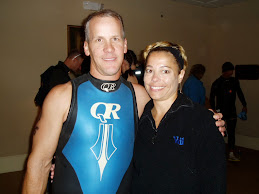I found a really good article about estimating calories burned – it is VERY technical, but I think some of you like that. Here is the take away from the article:
So what I would do, when I was watching this stuff closely, is use these calorie calculations as an estimate. I would take the most conservative one and then take off another 15-25%. Then I would watch the trend over the long run (say 1-2weeks) and I would see if the calorie deficit I was supposedly creating was really translating into lost weight. A 3500 calorie deficit should translate to 1 lbs of body weight.
Here is the full article:
Interesting enough, I used to think the scale I had at home was wrong, I have one that shows body fat% and water weight etc. I also used to think BMI was wrong or maybe wrong for me. I do not have Calipers and I have never been dunked in water for a % body fat test. I did use one of the “measurement” methods online to calculate body fat and compared this to my scale, as well as compared that scale to an older scale I have at home AND even the triple beam scale like the one in the locker room here at Duke.
Bottom line… all of this says almost exactly the same thing, simply put my calculations for how many calories I thought I was burning was NOT correct. In hind sight and after reading this article it was kind of a “Duh” moment. If you are cutting your calorie intake by roughly 3,500 calories per week in an effort to lose weight (roughly a pound a week) and you actually gain or do not lose after “closely” monitoring this for 2-3 weeks, your calculations MUST be wrong somewhere. They were for me! In addition, I had to figure out what caused my hunger and what foods gave me the energy I needed to train. It is as important or more important to eat the right things AND limit portion size not just cut calories. Now do not get me wrong, I HAVE been doing this for a while and with some success – just not correctly in many ways! What I was doing was not bad, in fact I eat VERY healthy as compared to my non-tri friends and my weight is not bad just not optimum for racing. I suspect I simply learned a little more about nutrition and lot more about ME and nutrition as we all do over time if we keep at it.
This started when I realized I actually went into The Arizona IM at 170+ somehow convincing myself this was added muscle I put on over the winter - :-o Nice Try!
Last year I raced my best race down in Cancun and weighed about 162 – 164. I have been watching this closely and really working at this and I am now at 160 with a race goal weight of 155. With 11 weeks to go until IM Lousiville I wanted to make that weight loss, make sure I could hold it easily and then have full “tanks” of fuel to train very hard in the last few weeks. It appears I am on track to do just that. Again from my reading, the experts say to try to lose the weight early during BASE, BEFORE your more intense training kicks in. 155lbs would not even be close to SUPER lean according to everything I read and according to BMI. As I have done this, I have not felt MORE tired but LESS tired (Part of the formula is eating not only less but the right food as well). Believe it or not when I get to 155lbs I estimate my body fat will still be 12% while maintaining the NEW muscle I put on in the winter. It is just a number though and what really matters is how you feel, are you healthy and does it help performance. I believe all will be there in the end.
A few of the key elements that worked for me was realizing I did not need the amount of food I thought I did for training. I would feel tired and think - well I am training a lot more now and I must need more carbs, more food etc. No, I was simply tired from training, my food intake was fine, I needed more rest. I had to figure out a better recovery interval, a better way of structuring my workouts so that I got just enough recovery before my next workout. In addition, I simply eat a LOT more vegetables through salads at lunch and cut the fat where I can, like dressings, spreads, jams, jelly, dairy etc. Finally, things high on the GI scale really affect me, probably more than some, so I cannot eat cereal in the morning with raisins. Raisins are simply loaded with carbs and good for you, but also very high on the glycemic index (GI). I could take some protein to counter act this, but I chose to just change my cereal choice. High GI food will have you eating an hour later and you generally crave the wrong types of food only making the problem worse. So watch the GI thing very closely.
Another bit of information that really captured my attention was something I read “somewhere”? For every pound of fat you lose this enables you to run 2 seconds faster per mile. Sure does not sound like much, until you add up the miles for a half or full marathon. When you see how it affects climbing on the bike, the results are simply unreal. I can see in my training this working in both my running and my cycling so that is very rewarding to see the pay off. Gordo is probably right many Pros are probably in a state of starvation but many age groupers are simply overweight or could certainly lose a few pounds that can have HUGE affects on performance both in training and racing. The trick is to figure out how EACH person makes this happen – one way to start I found was… you have to be honest with yourself first and if what you are doing is not producing results, then something MUST be wrong. The scale, the body fat % measurement and the BMI is probably not wrong – your burned calorie calculations and/or the amount of food or types of food you are eating is probably the actual problem.
In summary:
Calculate calories burned - conservatively!
Make sure your calculations are matching up with your weight loss results and goals.
Eat healthy by eating more vegetables and less pasta and high GI foods.
Only use gels, sports drinks and bars for workouts - these are "high test fuel" use them conservatively!
Eat at least two healthy snacks a day between meals, never starve yourself, never skip a meal and always eat breakfast.
Give yourself a treat now and then like low fat ice cream but try to make sure you eat a full meal first with a LOT of veggies and/or a salad.
Finally look in the mirror! - that is right, look in the mirror! If you look better, leaner, more healthy - you probably are!
One last benefit from eating well; I like a lot more foods than I used to and enjoy more variety than ever before.
Wednesday, June 13, 2007
Subscribe to:
Post Comments (Atom)












No comments:
Post a Comment